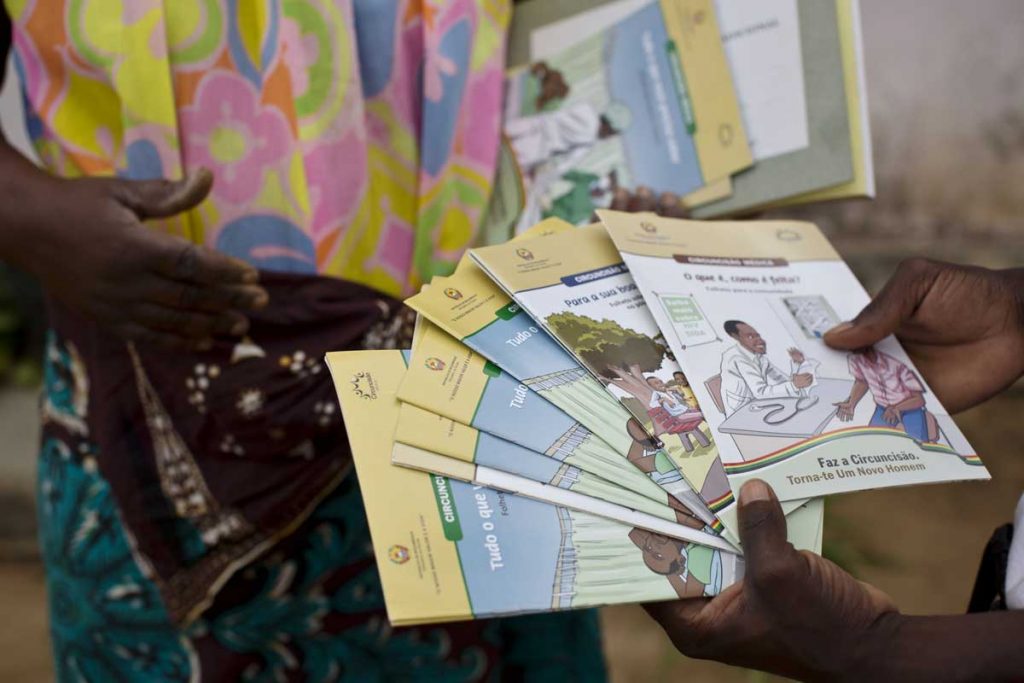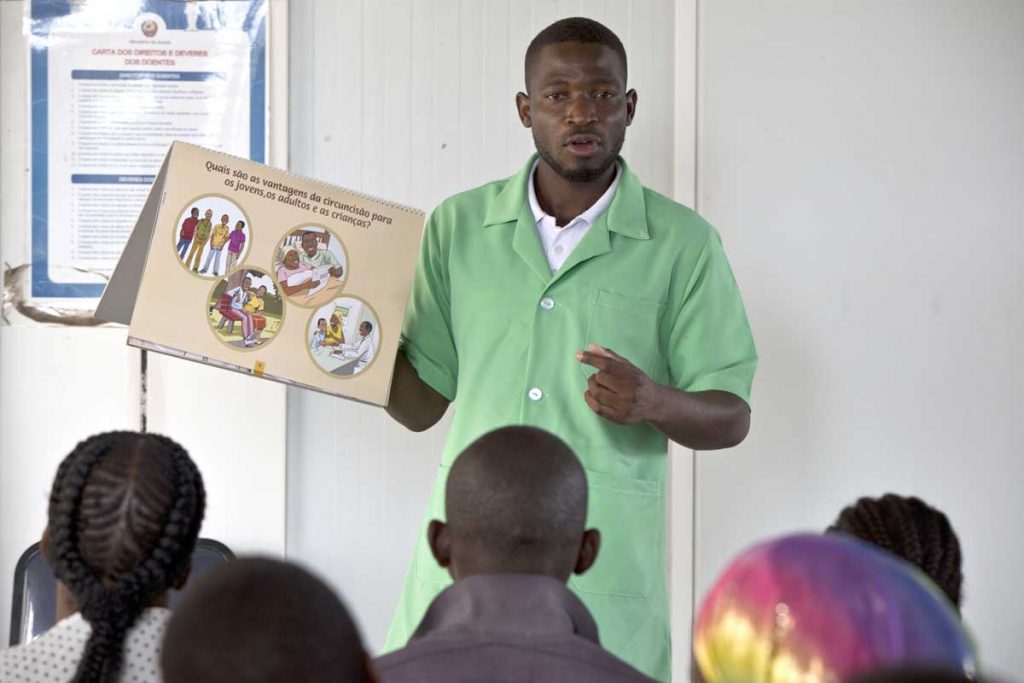
For years, João Fernando has been educating and counseling men and their partners on the health benefits of voluntary medical male circumcision (VMMC) in preventing HIV. As a community mobilizer in the fight to reduce HIV-related deaths, he has reached dozens of men in Macuelia, in Zambézia Province, and even escorted his 14-year-old son to undergo the procedure.
And yet, João remained uncircumcised. As a middle-aged, married father of eight children, he was embarrassed to talk with health providers and go forward with circumcision.
“What would I say if someone asked why I am getting circumcision just now? Someone could [spot] me in the clinic, sharing space with boys. … People could make fun of me,” he said.
As a community mobilizer, he knew what was at stake. Research has demonstrated the effectiveness of VMMC in reducing the risk of female-to-male sexual transmission of HIV by up to 70%, compared to uncircumcised men. When used in combination with other measures, such as condoms, or reduction in number of partners, VMMC is an important addition to men’s HIV prevention options. It also has health benefits for women.
For these reasons, the Mozambican Ministry of Health (MISAU) has made VMMC a top HIV prevention strategy. The ministry partnered with the US President’s Emergency Plan for AIDS Relief (through the US Centers for Disease Control and Prevention) and Jhpiego to train and engage mobilizers to promote the health benefits of VMMC to reduce the transmission of HIV and save lives.

João knew all the reasons to have the procedure. But it took a strong, educated woman to persuade him to move ahead. Recognizing her husband’s dilemma, Nelita Manteiga decided to educate herself about VMMC. She attended public lectures and educational sessions on the benefits of male circumcision to both men and women. As part of a comprehensive package of health services offered along with VMMC, men receive HIV testing and counseling services, guidance on condom use, and screening for sexually transmitted infections. In addition, Nelita learned that women with circumcised partners face a lower risk of developing cervical cancer, a leading killer of women in Mozambique.
Friends she met at the river washing clothes or at the water well also shared what they knew about the impact of VMMC on a woman’s health and marriage.
“They told me about how much closer they were and how their relationship got stronger and hygiene improved since their husbands got circumcised,” Nelita explained.
Encouraged by all she learned, Nelita talked openly with her husband about the benefits of the procedure, especially the short-term ones. As trust grew stronger, João overcame his fear and shame, and decided to undergo the procedure.
“My wife came to me and said, ‘You must go to the clinic and get circumcised.’ I couldn’t delay anymore. It was time for me to leave shame behind,” he said.
Wives like Nelita, mothers and other women have become allies in preventing HIV and lowering the risk of cervical cancer, attending educational sessions and activities to encourage their partners to voluntarily choose circumcision.
For João, he arrived at the health clinic at 6 a.m. one day in May to be among the first clients and, hopefully, avoid seeing too many people he knew.
“Although I was a bit nervous … I told myself that I wouldn’t give up because I was confident and that this was what I wanted,” he said.
Within a few hours, João had the 30-minute procedure without any postsurgery complications. He was one of 1,553,518 men in Mozambique who have been circumcised through the Jhpiego-supported National Program for the Expansion of VMMC since its debut in 2009.
João was discharged and taken home in a VMMC program car, as is customary for clients. He returned to the clinic 3 days later for a scheduled postoperative assessment and wound care; he recovered quickly and returned to work promptly.
“My wife and I are more intimate and living healthier,” said João.
João’s experience shows that male circumcision is about more than just the person who undergoes the procedure. “My husband became a new, [healthier] man,” said Nelita.
Fernando Fidelis is a senior communications officer in Jhpiego’s Mozambique office.




